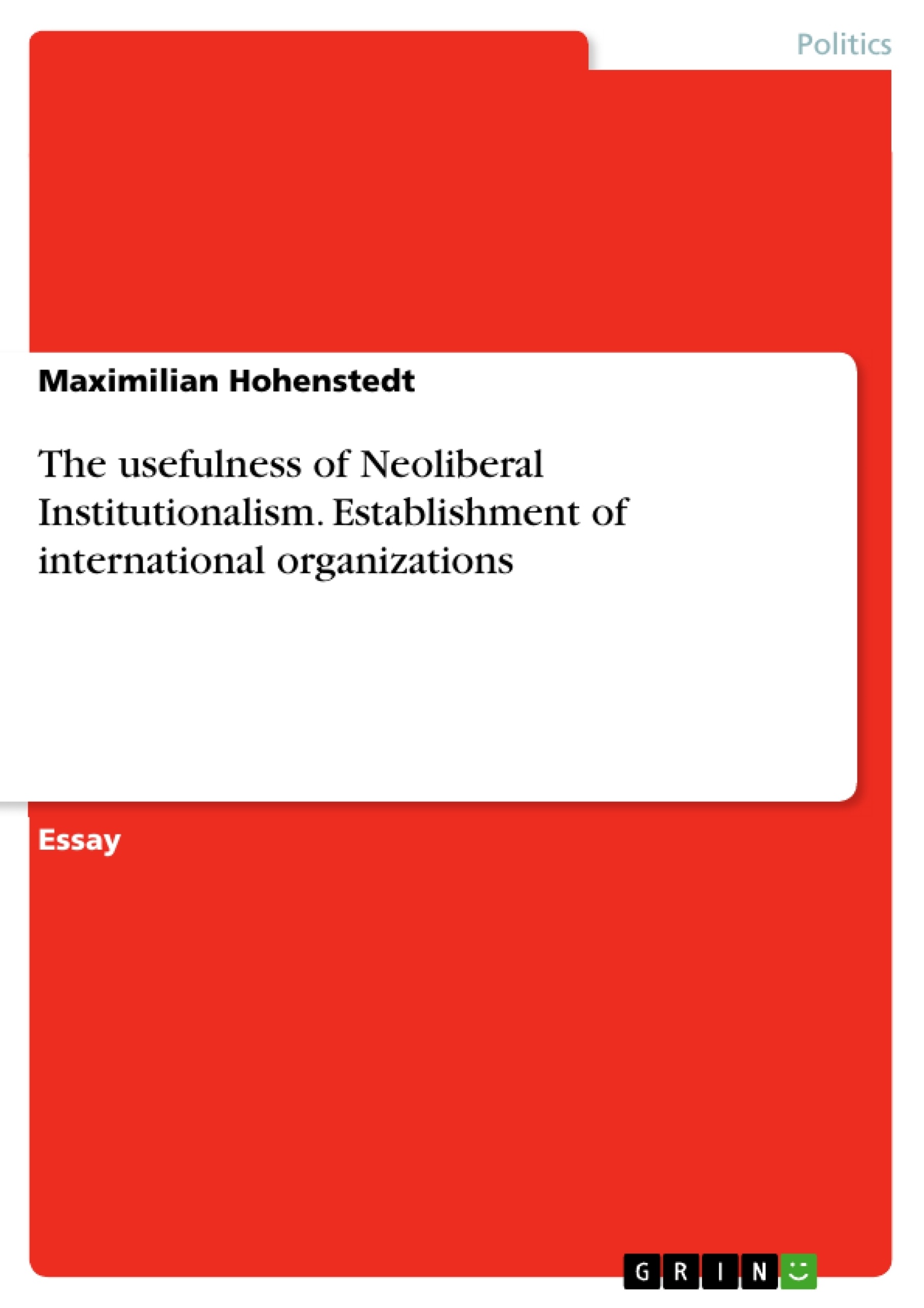Since the 1970s, institutions are in a renaissance within the social sciences and neoliberal institutionalism, founded and championed by political scientists as Robert Keohane, Joseph Nye, Robert Axelrod, Ronald Coase, Volker Rittberger and others.The relevance of international institutions for social behavior matters in the sense of international relations theories. Within the schools of thought in political sciences, neoliberal institutionalism is in a conflict with especially neorealist theory.
In this work, the concept of neoliberal institutionalism will get discussed in the sense of the establishment of international organizations. The work shall show, that neoliberal institutionalism may explain this establishment in the way of the actors motives (why are international organizations establishing?), but has some problems to explain, how (in which way concrete it comes to international organizations?). The rational preferences of the actors explain the motivation to establish international organizations, not the interaction to establish them.
Table of Contents
- Introduction
- Neoliberal Institutionalism and the question of institutionalization
- Problems of the theory & solution with recourse to constructivism
- The establishment of the ICC through the lense of neoliberal institutionalism
- Conclusion
Objectives and Key Themes
This essay aims to explore the concept of neoliberal institutionalism and its application to the establishment of international organizations. It examines the theory's strengths and weaknesses in explaining both the motivation and the process of establishing such organizations. The essay will then introduce a constructivist perspective, drawing on Habermas' theory of communicative action, to address a logical gap within neoliberal institutionalism.
- The role of institutions in international relations
- The application of neoliberal institutionalism to the establishment of international organizations
- The limitations of neoliberal institutionalism in explaining how international organizations are formed
- The contribution of constructivist theory, specifically Habermas' theory of communicative action, to understanding institutional formation
- The case study of the International Criminal Court (ICC) as an example of the establishment of an international organization
Chapter Summaries
- Introduction: The essay introduces the concept of neoliberal institutionalism, its relevance in international relations theory, and its conflict with neorealist theory. It highlights the importance of institutions in minimizing anarchy and facilitating cooperation among states, emphasizing the role of rational, goal-oriented actors and the possibility of win-win situations.
- Neoliberal Institutionalism and the question of institutionalization: This chapter delves into the key premises of neoliberal institutionalism, including the anarchic nature of the international system, the rationality of actors, and the possibility of absolute profits. It discusses the concept of institutionalization and how it influences governmental behavior. It explores the role of institutions in reducing transaction costs, overcoming distrust, and promoting long-term cooperation.
- Problems of the theory & solution with recourse to constructivism: This chapter examines the limitations of neoliberal institutionalism in explaining how cooperation actually takes place. It highlights the "logical gap" between the motivation to cooperate and the practical mechanisms of cooperation in an anarchic environment. It then proposes a solution by incorporating constructivist theory, particularly Habermas' theory of communicative action, to address this gap.
Keywords
The main keywords and focus topics of the essay include neoliberal institutionalism, international organizations, institutionalization, anarchy, rationality, cooperation, transaction costs, constructivism, communicative action, and the International Criminal Court (ICC).
- Quote paper
- Maximilian Hohenstedt (Author), 2017, The usefulness of Neoliberal Institutionalism. Establishment of international organizations, Munich, GRIN Verlag, https://www.grin.com/document/385718




